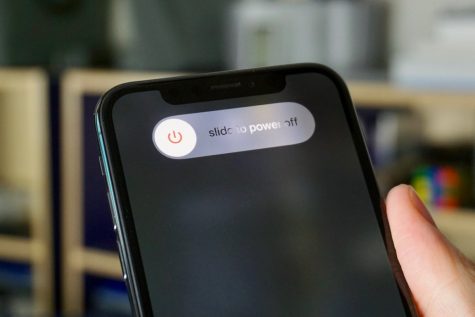Get Things Done Now: 7 Ways to Combat Procrastination
Finding the will to sit down and work for hours can be hard. Here are some ways to combat procrastination and set yourself up for success.
November 12, 2020
Finding the will to sit down and work for hours can be hard, and most students battle procrastination at some point during their school career. Procrastination is usually a result of one of four different situations: distant deadlines (which increase the likelihood that the task will be put off), a lack of self-confidence, a seemingly uninteresting or unimportant task, and an inability to focus on a given task. Here are some ways to combat procrastination and set yourself up for success.
Thorough Lists
Long, vague lists only increase stress. A helpful “to-do list” includes realistic and specific times frames for each assignment. A developed “to-do list” reminds you of the tasks that can be completed within a given period of time. You can also break down larger assignments into smaller pieces to be completed each night (instead of competing the entire assignment on the night before the deadline). For example, instead of writing “Guided Literary Analysis due Friday”, it is more useful to write, “Quotes and thesis for GLA due Monday”. Similarly, identifying a specific objective — rather than the general assignment — makes essays and tests seem less daunting. If anxiety or laziness contributes to your procrastination, breaking down a larger task is motivation to begin assignments earlier and find a focus each night.

Mindset Matters
First and foremost, if you feel overwhelmed by your workload, reach out to your counselor or teachers. They are more than happy to offer you advice, and in many cases, devise a time management plan for you. Secondly, if you sit down to work with a negative or distracted mindset, it is more difficult to complete tasks efficiently. Rather than thinking of school as the place in which you are given an endless stream of graded assignments, shift your perspective to see school as a way to learn new things, exercise your brain, and have new experiences. This is a skill that requires practice and concentration; each time that you catch yourself mentally checking-out during an assignment, remind yourself of the reasons that you value you education. These affirmations will gradually promote a new mental approach to completing challenging assignments. With time, you will feel engaged and subsequently take more away from the assignment, and the positive thoughts will come naturally.

Exercise
Exercising after a long day at school provides you with energy. It can also calm you down and alleviate restlessness. Both of these mentally and physically prepare you to complete homework. Depending on how you are feeling, you can choose a physically-demanding work out routine, or something more relaxing such as yoga — either delivers the benefits of exercise. Going for a walk or riding your bike around the neighborhood are great ways to get fresh air and give your eyes a break from the screens on virtual class days. Even five minutes of physical activity can be beneficial to your health; in the long run, better health enables you to focus and work harder.

A Comfortable Workspace
This is an obvious but important strategy to combatting procrastination. You should work at a clean, comfortable, and spacious area at which you can lay out your materials. Remove clutter and any objects that may become a distraction while you work. Although a bedroom desk or kitchen table are common workplaces, anywhere that is comfortable and promotes a clear mind (remove yourself from rooms with background conversations or televisions) is ideal.

Prioritize Assignments That Require More Brain Power
Beginning the final homework assignment of the night and then realizing it is going to take several hours to complete is a frustrating feeling. Start more intensive assignments while your brain is still alert, and save smaller tasks that require less thought for later. When you are tired, it is easier to motivate yourself to finish a simple worksheet than to write pages of notes or study for an exam.

Put Away Your Phone
It is easy to spend hours watching funny videos or scrolling through your social media feeds. Sitting down to write a paper or take notes, however, often seems impossible. Limiting the time you spend on your phone benefits your brain. Keeping your phone with you undoubtedly interrupts your productivity, and can also cause anxiety. The instant gratification you receive when using your phone is addicting, and makes it more difficult for you to sit down to complete harder tasks. If your grades are suffering as a result of an extensive amount time spent on social media, delete distracting apps until you see an improvement. It may be necessary to hand your cell phone to a parent or guardian if keeping it near you is too much of a temptation.

Taking Productive Breaks
Incorporating scheduled breaks into your routine refreshes your mind and elevates your mood. Free time is another way to overcome the fear of starting your list of assignments. Depending on the length of the break, you can stretch, grab a snack, exercise, or play an instrument. Taking time for yourself and making room in your schedule for activities that you enjoy is a form of self-care. To prioritize these breaks, draft your schedule around these breaks.

Above all else, it is important to find the strategies that help you avoid procrastinating. Determining the source of your procrastination may help you select the appropriate tools to fight procrastination and improve your productivity.


